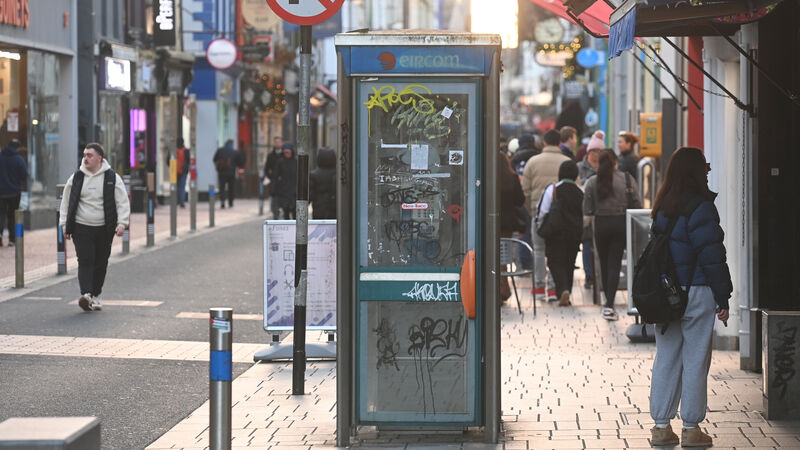Colin Sheridan: The now-defunct phone boxes were once lifelines to our hopes and dreams

For the pre-mobile generation however, the payphone played a seminal role in all our lives. File picture: Larry Cummins
Farewell to the phone box, that curious rectangular fixture which adorned city street corners and town squares for over a century.
Eir — the telecommunications company charged with decommissioning the boxes — have announced they will refurbish a 100-year-old 'K1' kiosk, the first type of payphone box introduced in Ireland, to commemorate the occasion.













